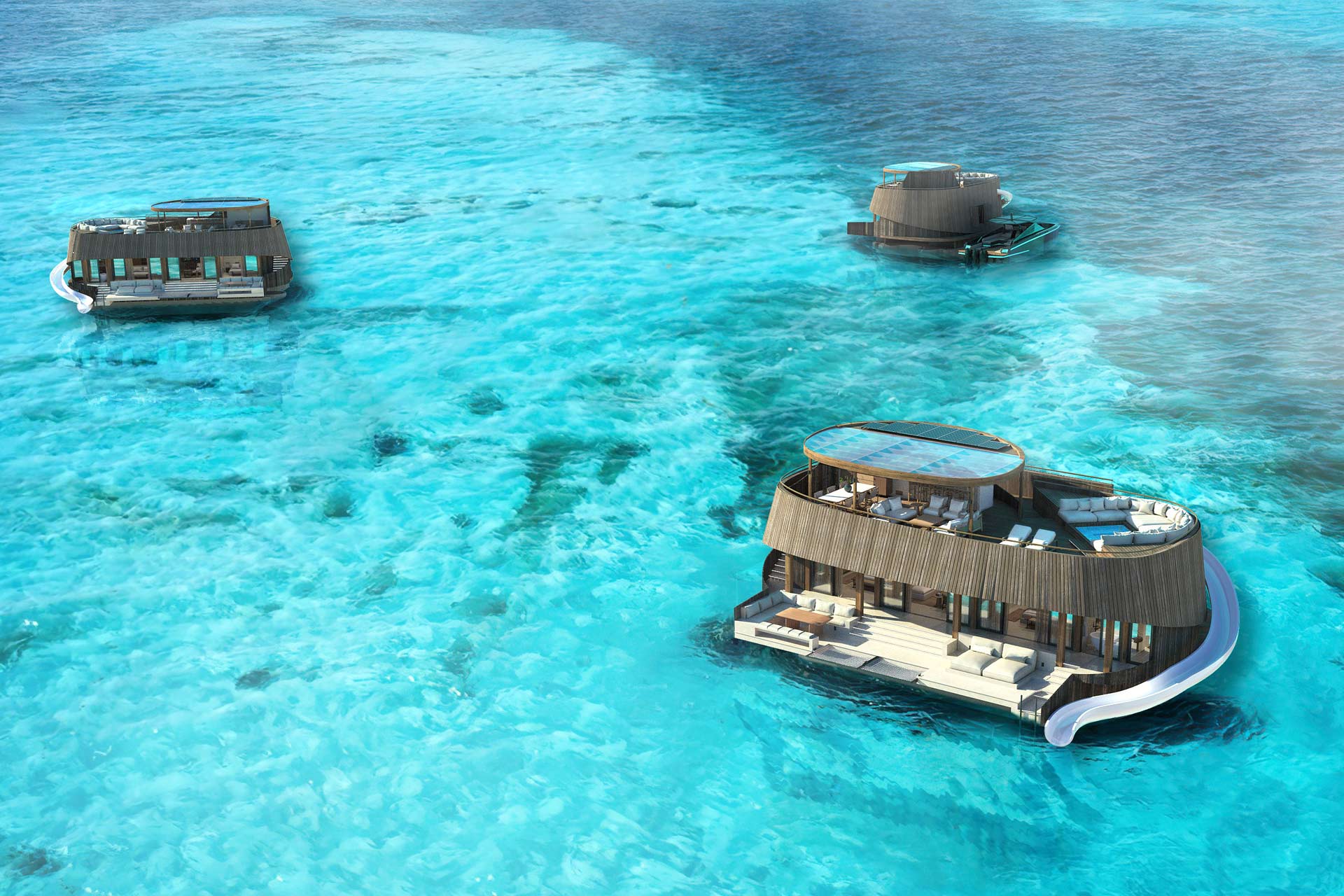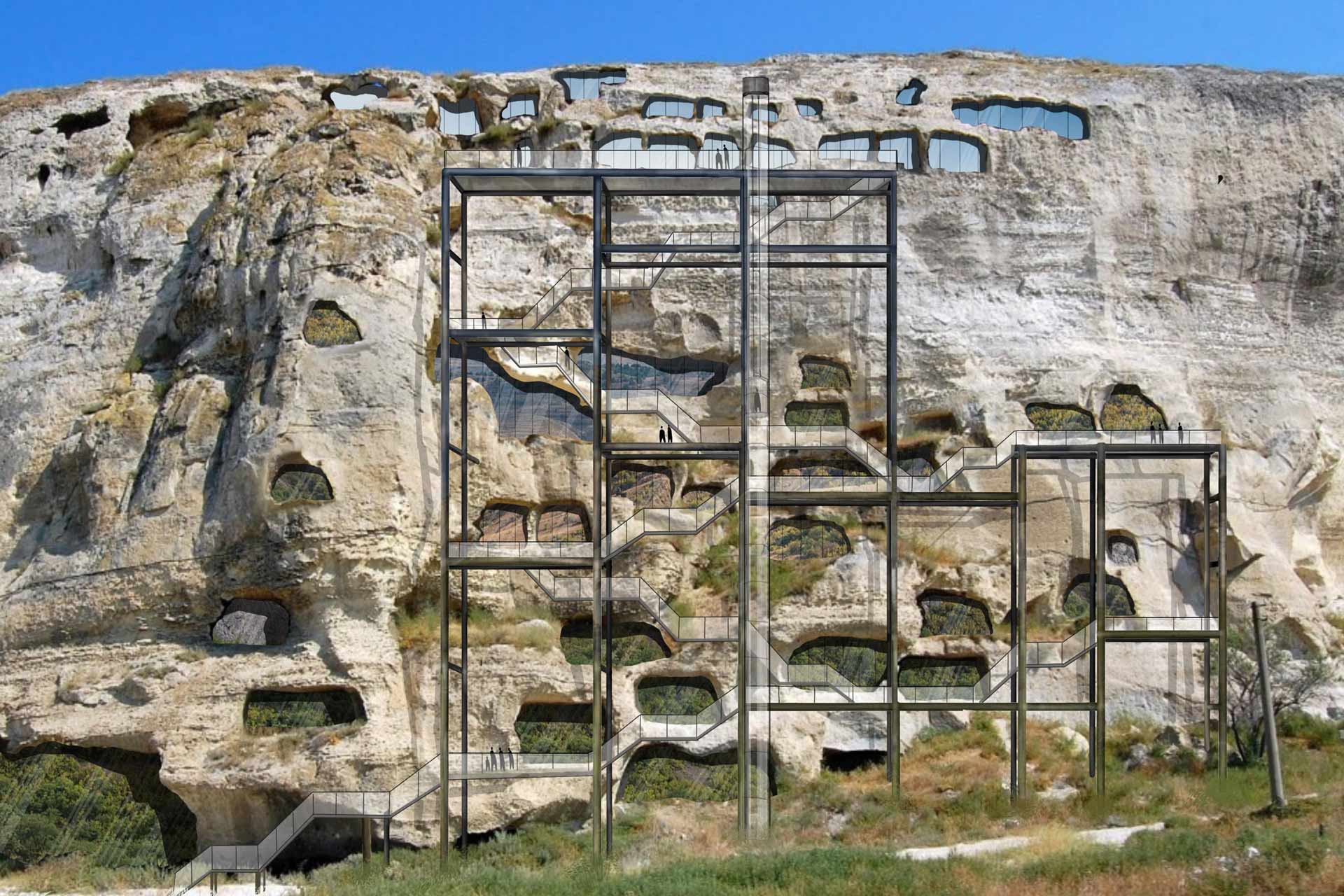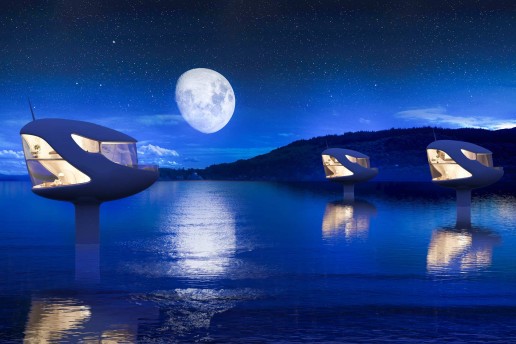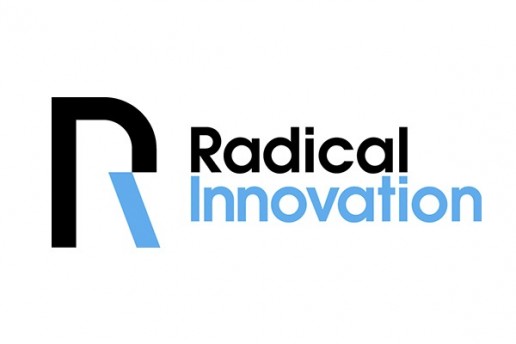Following a global call for entries, Radical Innovation has announced its finalists, offering a glimpse into the hotels of the future. Having first launched in 2006, the annual competition is open to professionals and students, and challenges creative thinkers to pioneer innovations that fuel the future of hospitality.
In all, 100 entries were received from around the world, with finalists split across the competition’s four categories – Professional Project, Student Project, Professional Product and Student Product. A judging panel – comprising 32 experts from the likes of Accor, Hilton and WATG – was tasked with selecting finalists based on the innovative nature oftheir vision, the excellence of their design, the project’s feasibility, and its capacity to have a positive impact on the industry.
Professional Project Finalists
The finalists in the Professional Project category have been named as Spinhous by Populous and The Turtle Bungalow by Luxury Frontiers.
Taking the lead on behalf of Populous, Associate Joel-Laurent Mbala-Nkanga has envisaged a mobile hotel concept rooted in a desire to break free from conventional travel limitations. The unique accommodation solution combines the convenience and comfort of a hotel room with the freedom and flexibility of a vehicle, allowing travellers to embark on extraordinary journeys without sacrificing on luxury and relaxation.
For the Luxury Frontiers team – made up of Nadine Van Vuuren, Juan Cloete and Graeme Labe – mobility was also the focus. Their concept, known as The Turtle Bungalow, is an aquatic nomad designed to sail from island to island in tropical waters. Spread across two levels, the accommodation has ample space for relaxation, with an overwaterhammock, rooftop bar and lounge and hot tub, as well as a slide offering direct access to the water. Developed for minimal impact, it also incorporates solar panels, a desalination plant and environmentally-safe sewage treatment.

Student Project Finalists
In the Student Project category, both finalists hail from Kazan State University of Architecture & Engineering. Cross-Over Hotel by Adelina Khabibullina and TiArch Studio is a response to the increasing population in urban environments, which results in less space for new hotel development. Through construction of a bridge system that fits any body of water, the concept sees built elements stacked over water, effectively preserving land resources.
The Rocky Hotel meanwhile, by Nadia Shumeeva and TiArch Studio, is built into existing mountain terrain. Set across multiple levels, it makes use of natural materials and offers direct access to the landscape, resulting in true immersion into the surroundings.

Professional Product Finalists
Finalists in the Professional Product category are designed to bring something new to the market. A sustainable alternative to disposable plastic cups, The Gourd Project – by Crème Design founder Jun Aizaki – sees a biodegradable and compostable drinking vessel crafted from dried and hollowed gourds, a fleshy fruit with a hard skin. Inspired by Japanese traditions, the concept follows centuries-old methods; future development for the project will involve grower outreach, production research, scalability and selecting a biodegradable liner to make the cups sturdy enough to withstand repeated use.
The second finalist – StoreX by StoreXapp co-founders Sergei Mamedrzaev and Ragib Veliev – is a fully-automated robotic store that facilitates 24/7 unattended order pick-ups by humans and delivery robots. By leveraging these technologies, the duo believe that hotels can optimise their operations, reduce costs and meet growing demand for faster, more personalised and sustainable services.
Student Product Finalists
Finalists in the Student Product category are studying at universities in China and the UK. Envisioned by Wen Shin Zeng of Ming Chi
University of Technology, H+S Health Spring aims to provide a healthy and relaxing shower experience. The product’s volcanic stone tank enables the incorporation of herbs and essential oils, while the shower can also be connected to a smartphone via Bluetooth so that guests can listen to music for a calming experience.
Pulpatronics meanwhile, by Barna Soma Biro, Chloe So, Jingyan Chen and Rui Ma from Imperial College London and Royal College of Art, is a sustainable radio-frequency identification tag that can be embedded into items for smart inventory management. The tags could be integrated into the hospitality industry where temporary information storage is needed, including in key cards or wristbands.
Online voting for 2023 winners will open on 18 September on the Radical Innovation website. The finalists will present their concepts, and the winner will be announced at a ceremony and dinner on 24 October in New York.
Related Posts
10 September 2021
Radical Innovation announces 2021 finalists
21 June 2016
Radical Innovation announces finalists
3 January 2016



